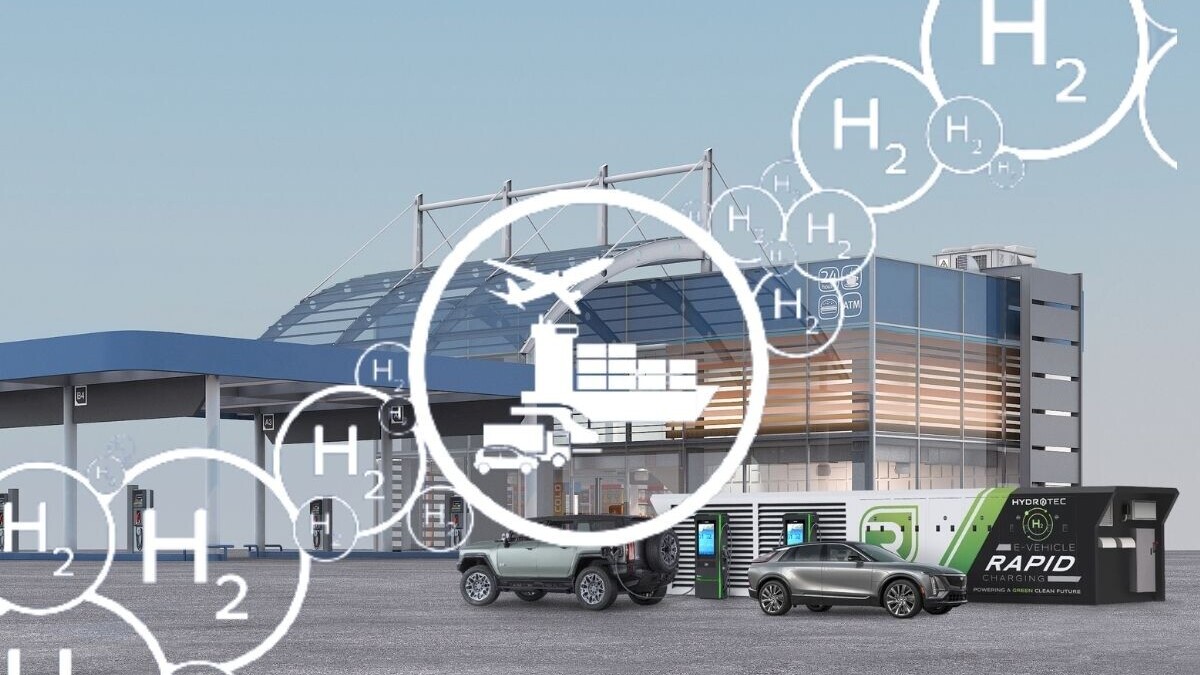
While some automakers have bet on hydrogen to power up their transition to renewable energy, GM is following another approach: it’s going all in on EVs and it’s using its HYDROTEC fuel cell technology to replace traditional gas or diesel generators.
On Wednesday, they company announced its plans to introduce three Mobile Power Generators (MPGs), using its HYDROTEC fuel cell power cubes.
Simply put, MPGs can produce large amounts of electricity anywhere, without burning fossil fuels, or expanding a local power grid.
In the case of GM, the generators can put out power ranging from 60kW to 600kW, but what exactly will they bring to the table?
Let’s break it down:
1. The Mobile Power Generator for EV charging

In collaboration with Renewable Innovations, GM’s planning to show off in mid-2022 an MPG-powered mobile fast-charging station for EVs.
That way, places where there’s only a temporary need for power, wouldn’t have to expand to expand the grid or permanently install charging assets.
The project was co-funded by the Michigan Economic Development Corporation and the U.S. Army, while the California Energy Commission is funding a separate program to explore how the MPGs could help provide energy during power shutdowns.
2. The EMPOWER rapid charger

Again in partnership with Renewable Innovations, GM’s developing a mobile rapid charger, which could deliver fast EV charging to existing retail charging stations without the need for huge infrastructure improvements.
According to the company, the EMPOWER can fast-charge four EVs at the same time, reaching full charging within approximately 20 minutes. It could potentially juice up more than 100 electric vehicles, before the unit would need to be resupplied with hydrogen.
Renewable Innovations plans to deploy 500 EMPOWER rapid chargers across the US by the end of 2025.
3. The palletized Mobile Power Generator for the army

GM is also designing a palletized version of the MPG that could power heavy-duty military equipment and camps.
The prototype is said to produce nearly 70% more power than traditional diesel generators, and contains features like battery backup and output regulation, which aren’t on diesel generators.
The tech is currently under evaluation by the U.S. Army Combat Capabilities Development Command Ground Vehicle Systems Center (GVSC).
Potential future applications
GM says that, ultimately, these fuel cell generators could replace gas and diesel generators at worksites, buildings, movie sets, data centers, outdoor concerts, and festivals.
They could even back up or temporarily replace grid-sourced electricity for residential and small commercial enterprises at times of power shutdowns.
Does GM’s hydrogen strategy make sense?
Yes, it absolutely does.
GM is already running a number of HYDROTEC projects, ranging from trucks to aerospace and locomotive, so it seems like a natural step to expand the commercial applications of its technology.
Aside from that, moving the hydrogen focus beyond transportation seems like a timely and smart move. There’s a growing demand from the entire energy sector to move to renewables and, in turn, a whole lot of market opportunities in facilitating this transition.
Get the TNW newsletter
Get the most important tech news in your inbox each week.





